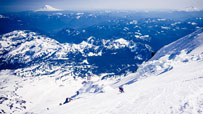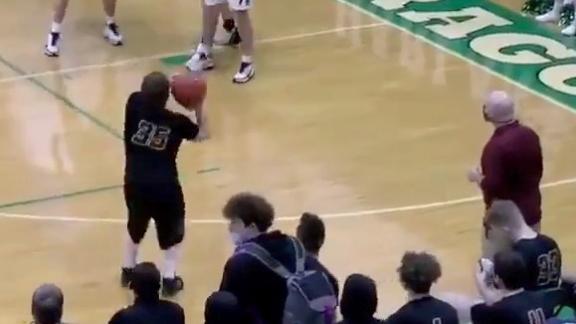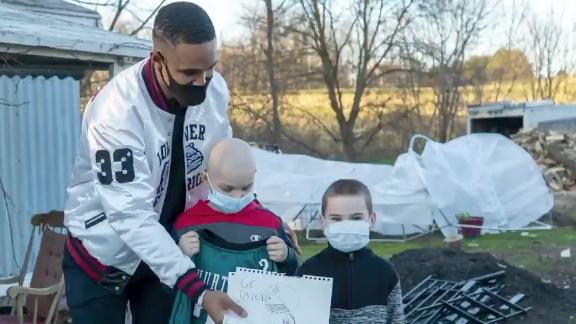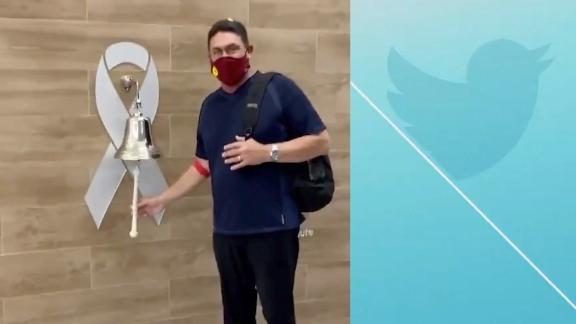Alaska's 20,320-foot Mt. McKinley has presented unrelenting poor weather and avalanche conditions this climbing season and has kept multiple parties from the summit. Several people have not returned from their expeditions up North America's highest peak, including a group of four Japanese climbers, who died on the mountain in mid June.
Among those turned from the summit recently is Whistler-based big-mountain skier Holly Walker. After three weeks on the mountain, Walker and her partner left Denali on June 13 and skied the mountain from the highest base camp in one, long run.
"I don't remember exactly when the thought to ski Denali entered my brain," says Walker over the phone, just days after her return. "I knew I wanted a challenge after my stroke to see what I was capable of."
Three and a half-years-ago, while living in Silverton, Colo., Walker -- a sponsored skier who used to compete on the Freeskiing World Tour -- suffered from a freak stroke at the age of 28. The hemorrhaging found in her brain wasn't properly diagnosed until six days after her initial symptoms of headaches, confusion, and clumsiness and only after her parents had been misinformed that Walker had a life-threatening tumor in her brain. She was immediately put on blood thinners to dissolve the clot in her brain and moved to Vancouver, B.C., just two weeks later so that she could be closer to her family and the G.F. Strong Rehabilitation Center.
At G.F. Strong, Walker had to learn everything again, from writing to controlling the right side of her body. Slowly, she recovered. "After my stroke, I couldn't keep up with all of the ideas about what I wanted to do with my life," explained Walker. "But the Himalayas seemed a little far away."
At the beginning of the 2012 season, she set her sights on Denali, a reasonable goal for a girl who had climbed and skied peaks like 10,400-foot Mt. Baker in Washington less than two years after her stroke. At the time she was still struggling with some basic motor skills and confusing or forgetting words in both French and English, but Walker still had the impetus to climb mountains.
Just over three years later, Denali seemed like an appropriate objective.
“I don't remember exactly when the thought to ski Denali entered my brain. I knew I wanted a challenge after my stroke to see what I was capable of.
” -- Skier Holly Walker
In April, just one month before her flight to Alaska, Holly's neurologist suggested that she should cancel her trip to Denali. She had just finished a successful ski mission up Washington's Mt. Rainier, but the doctor explained that severe complications could ensue if Walker ventured to higher altitudes. She went for a second opinion.
An emergency physician in Colorado specializing in high altitude helped Walker regain confidence about her plans. Lots of water and aspirin, which works as a blood thinner and reduces the risk of clots, were suggested and she was back to prepping for the trip.
"Physically, I felt fine. I'd been training on the Spearhead Traverse in Whistler, Rainier, Baker, and many others all winter," says Walker. "The other risks inherent in mountain climbing were more of a concern."
On May 24, Walker arrived in Talkeetna to catch a three-person Cessna 185 plane to Denali.
Walker and her partner set a three-week cap on their expedition. During that time they stayed nearly two weeks at the 14,420-foot Camp 4, where it snowed almost three feet. They ski toured every day with hopes of making it to the Messner Couloir or Orient Express, but unfortunately there was blue ice on both routes.
On June 11, they moved up to Camp 5 at 17,200 feet. On June 13, they had a clear window to try for the summit, but within a short period of time, incoming clouds, 60-mile-per-hour winds, and increased avalanche danger confirmed a decision to leave the mountain. That day, marking their three weeks, they skied out. They left Camp 5 and skied to the airstrip in one go, missing the avalanche that killed the Japanese climbers (the morning of June 14 at 1 a.m.) by one and a half hours.
"It wasn't my stroke that kept me off the summit," says Walker. "It was the weather."





